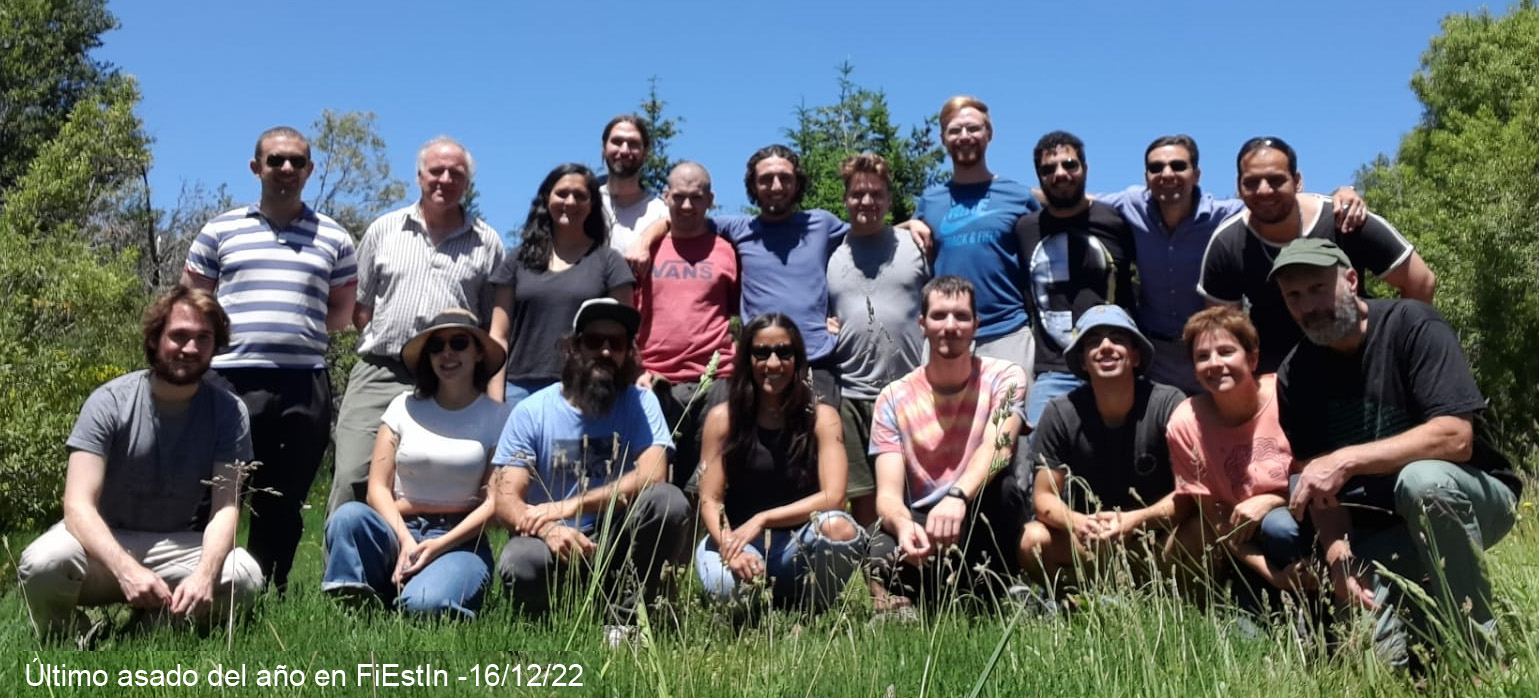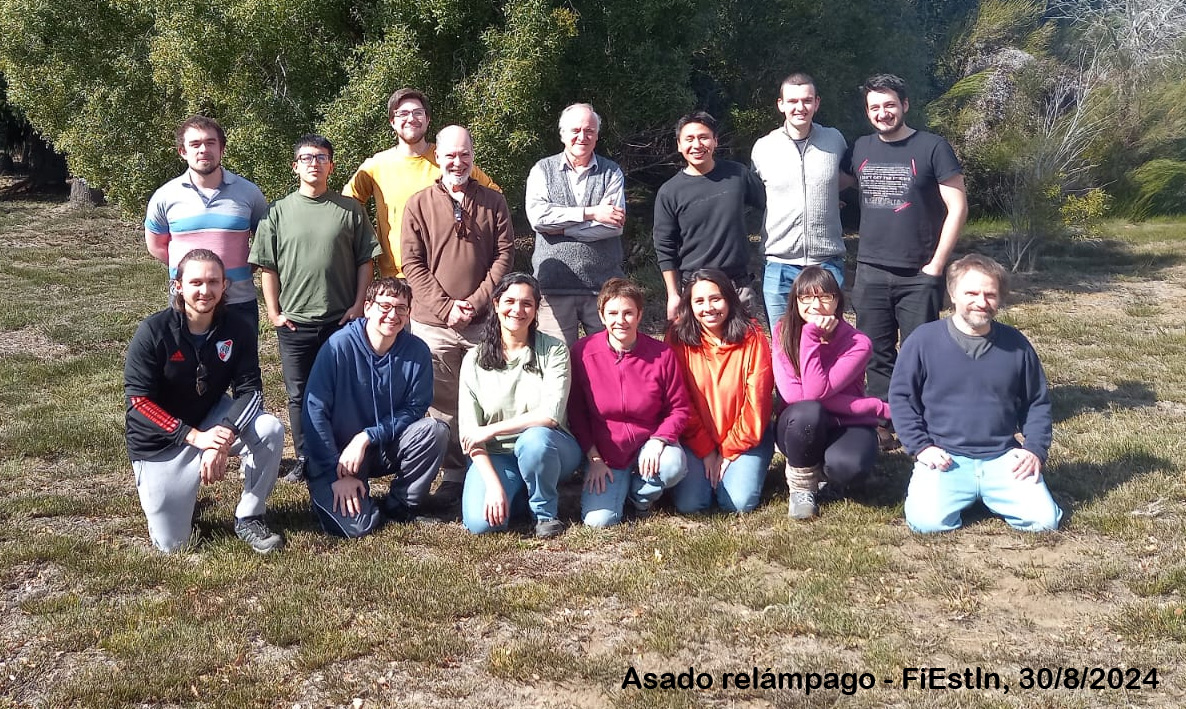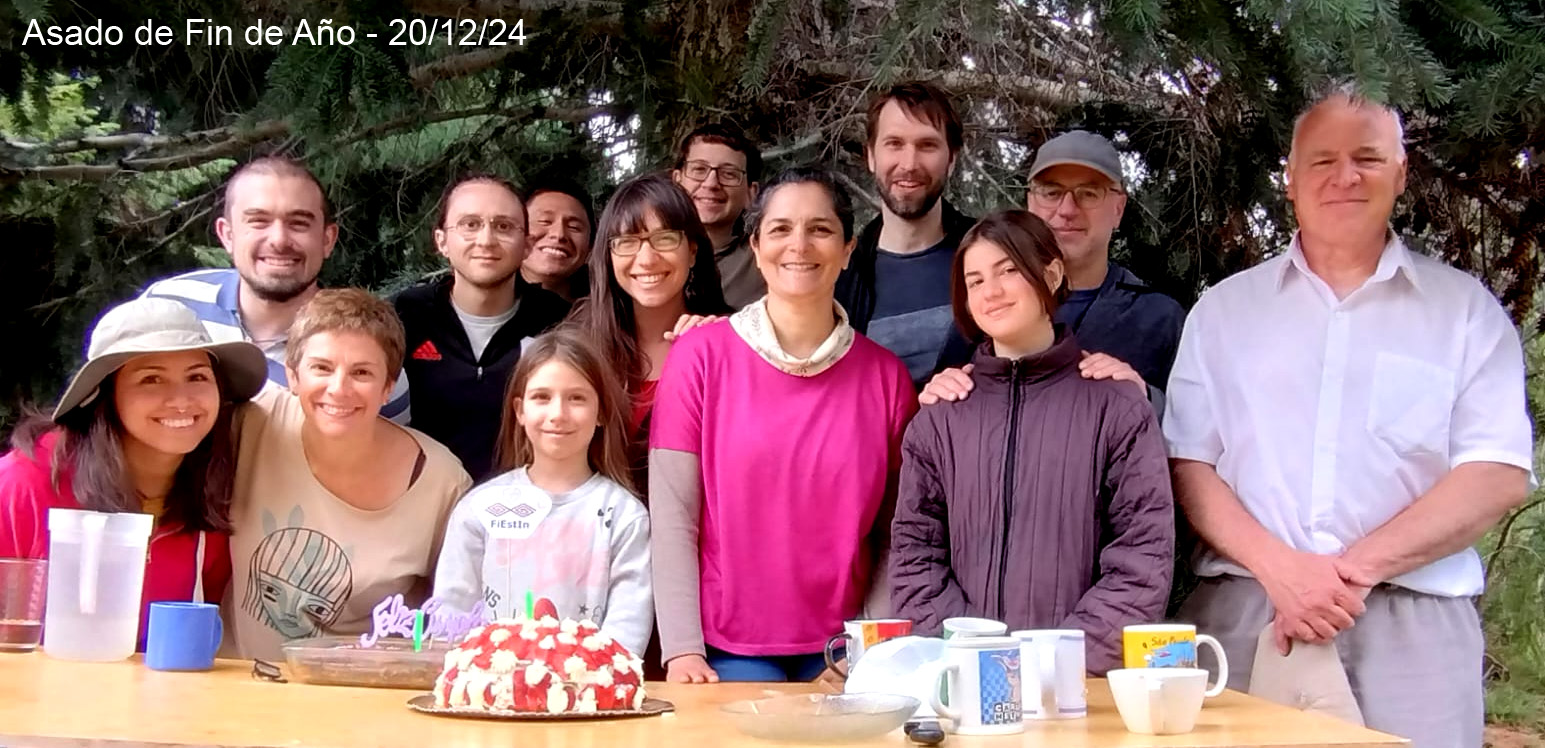
Group members
Click on underlined names to contact us individually.
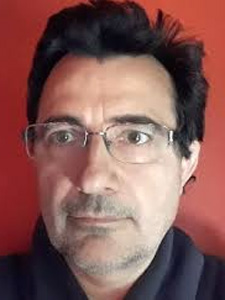 Adrián Budini
studies open quantum systems (dissipation and decoherence), quantum optics (fluorescence, single-molecule spectroscopy, quantum jumps, stastistics of photon counting), and classical stochastic processes (Langevin equations). His main contributions consist of the formulation and application of non-Markovian model dynamics to those areas. He has a Ph. D. in Physics (UFRJ, Brasil), and is independent researcher of CONICET.
Adrián Budini
studies open quantum systems (dissipation and decoherence), quantum optics (fluorescence, single-molecule spectroscopy, quantum jumps, stastistics of photon counting), and classical stochastic processes (Langevin equations). His main contributions consist of the formulation and application of non-Markovian model dynamics to those areas. He has a Ph. D. in Physics (UFRJ, Brasil), and is independent researcher of CONICET.
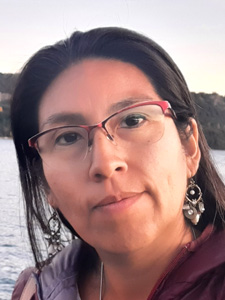 Claudia Alejandra Huaylla
studies complex networks applied to ecology, focusing on the structure and dynamics of ecosystems, with present emphasis on geographical threshold graphs.
She holds a degree in Mathematical Sciences (UBA–FCEN) and a Ph. D. in Statistics (UNR–FCEyE). Presently, she is postdoctoral fellow of CONICET, under the supervision of Drs. Fabiana Laguna and Marcelo Kuperman. She is also adjunct professor of Universidad Nacional de Río Negro.
Claudia Alejandra Huaylla
studies complex networks applied to ecology, focusing on the structure and dynamics of ecosystems, with present emphasis on geographical threshold graphs.
She holds a degree in Mathematical Sciences (UBA–FCEN) and a Ph. D. in Statistics (UNR–FCEyE). Presently, she is postdoctoral fellow of CONICET, under the supervision of Drs. Fabiana Laguna and Marcelo Kuperman. She is also adjunct professor of Universidad Nacional de Río Negro.
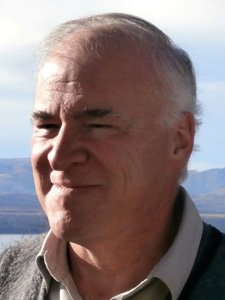 Damián Zanette studies collective behavior in populations of interacting dynamical systems, and analyzes models of biological and social phenomena, such as epidemic propagation and opinion formation on networks and other complex structures. He is also interested in the statistical properties of language and music. He holds a Ph. D. in Physics, and he is a principal researcher of CONICET and full professor of Instituto Balseiro.
Damián Zanette studies collective behavior in populations of interacting dynamical systems, and analyzes models of biological and social phenomena, such as epidemic propagation and opinion formation on networks and other complex structures. He is also interested in the statistical properties of language and music. He holds a Ph. D. in Physics, and he is a principal researcher of CONICET and full professor of Instituto Balseiro.
 David Schneider
studies biological models with emphasis in evolution and speciation. He deals with these problems using numerical simulations and analytical tools from nonlinear dynamics and complex network theory. He holds a Ph. D. in Physics, and he is a researcher of CONICET and a Physics teacher at Universidad Nacional de Río Negro.
David Schneider
studies biological models with emphasis in evolution and speciation. He deals with these problems using numerical simulations and analytical tools from nonlinear dynamics and complex network theory. He holds a Ph. D. in Physics, and he is a researcher of CONICET and a Physics teacher at Universidad Nacional de Río Negro.
 Eric Rozán holds a degree in Physics from Universidad de Buenos Aires and is a M. Sc. in Physics of Instituto Balseiro. Presently, he carries on his Ph. D. thesis in Physics with a scholarship of CONICET. He works on mathematical epidemiology with models based on complex networks, under the supervision of Drs. Marcelo Kuperman and Sebastián Bouzat.
Eric Rozán holds a degree in Physics from Universidad de Buenos Aires and is a M. Sc. in Physics of Instituto Balseiro. Presently, he carries on his Ph. D. thesis in Physics with a scholarship of CONICET. He works on mathematical epidemiology with models based on complex networks, under the supervision of Drs. Marcelo Kuperman and Sebastián Bouzat.
 Fabiana Laguna studies problems of social and biological origin, using tools from Physics and Mathematics. She is particularly interested in ecological systems, epidemics propagation, and mechanisms of opinion formation and wealth distribution. She holds a Ph. D. in Physics, is independent researcher of CONICET, and teaches at Universidad Nacional de Río Negro.
Fabiana Laguna studies problems of social and biological origin, using tools from Physics and Mathematics. She is particularly interested in ecological systems, epidemics propagation, and mechanisms of opinion formation and wealth distribution. She holds a Ph. D. in Physics, is independent researcher of CONICET, and teaches at Universidad Nacional de Río Negro.
 Guillermo Abramson studies complex systems at the boundary between Physics and Biology. His interests comprise dynamical systems, the formation of spatiotemporal structures, and the emergence of order in ecological systems. In particular, he is interested in mathematical aspects of epidemic propagation. He has a Ph. D. in Physics, is a principal researcher of CONICET, and teaches at Instituto Balseiro. As an amateur astronomer, he is also involved in the divulgation of Astronomy.
Guillermo Abramson studies complex systems at the boundary between Physics and Biology. His interests comprise dynamical systems, the formation of spatiotemporal structures, and the emergence of order in ecological systems. In particular, he is interested in mathematical aspects of epidemic propagation. He has a Ph. D. in Physics, is a principal researcher of CONICET, and teaches at Instituto Balseiro. As an amateur astronomer, he is also involved in the divulgation of Astronomy.
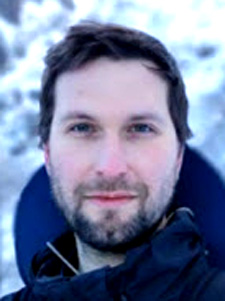 Ignacio Cortés
carries on a degree thesis in Economics, about the time structure of interest rates. He studies financial and debt markets. Moreover, he analyzes valorization of nature and its relation to capital markets. He provides auxiliary technical services to FiEstIn, in equipment maintenance and administration. He works under the supervision of Miguel Attaguile (UNRN), Sebastián Bouzat, and Ricardo Abduca (CONICET).
Ignacio Cortés
carries on a degree thesis in Economics, about the time structure of interest rates. He studies financial and debt markets. Moreover, he analyzes valorization of nature and its relation to capital markets. He provides auxiliary technical services to FiEstIn, in equipment maintenance and administration. He works under the supervision of Miguel Attaguile (UNRN), Sebastián Bouzat, and Ricardo Abduca (CONICET).
 Karina Laneri studies the spatiotemporal dynamics of animal movement, forest fire spread, and some infectious diseases. By combining data with mathematical models and computer simulations, she aims to understand the key mechanisms underlying observed patterns, using statistical inference techniques. Interdisciplinary work is one of her main motivations, integrating fieldwork, theory, and computer simulations. Her research brings together approaches from Physics, Biology, Engineering, and Computer Science. She holds a PhD in Physics, is an independent researcher at CONICET, and teaches at Instituto Balseiro. She currently serves as the head of FiEstIn.
Karina Laneri studies the spatiotemporal dynamics of animal movement, forest fire spread, and some infectious diseases. By combining data with mathematical models and computer simulations, she aims to understand the key mechanisms underlying observed patterns, using statistical inference techniques. Interdisciplinary work is one of her main motivations, integrating fieldwork, theory, and computer simulations. Her research brings together approaches from Physics, Biology, Engineering, and Computer Science. She holds a PhD in Physics, is an independent researcher at CONICET, and teaches at Instituto Balseiro. She currently serves as the head of FiEstIn.
 Laila Kazimierski studies animal movement, complementing design and development of monitoring systems with theoretical models of movement tuned with field experimental data. She holds a Ph. D. in Physics, and is assistant researcher of CONICET.
Laila Kazimierski studies animal movement, complementing design and development of monitoring systems with theoretical models of movement tuned with field experimental data. She holds a Ph. D. in Physics, and is assistant researcher of CONICET.
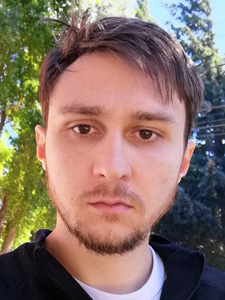 Lautaro Giordano holds a M. Sc. in Physics and presently carries on his Ph. D. in the same discipline. His research focuses on modelling and analysis of the interaction between social, economic, and physical factors in complex systems. He works under the supervision of Drs. Fabiana Laguna and Sebastián Gonçalves (UFRGS, Brasil).
Lautaro Giordano holds a M. Sc. in Physics and presently carries on his Ph. D. in the same discipline. His research focuses on modelling and analysis of the interaction between social, economic, and physical factors in complex systems. He works under the supervision of Drs. Fabiana Laguna and Sebastián Gonçalves (UFRGS, Brasil).
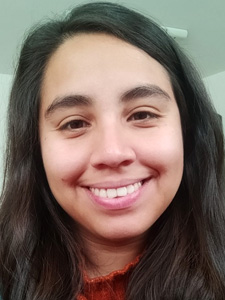 Lioren Suárez holds a degree in Physics. With a scholarship of CONICET, she carries on her Ph. D. thesis in Physics on stochastic aspects and pattern formation in biological populations, under the supervision of Drs. Fabiana Laguna and Nara Guisoni (Universidad Nacional de La Plata).
Lioren Suárez holds a degree in Physics. With a scholarship of CONICET, she carries on her Ph. D. thesis in Physics on stochastic aspects and pattern formation in biological populations, under the supervision of Drs. Fabiana Laguna and Nara Guisoni (Universidad Nacional de La Plata).
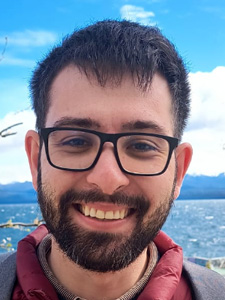 Luiz Menon Jr. researches nonequilibrium statistical Physics and stochastic processes, focusing on problems such as random searches, first-passage processes, and reaction–diffusion equations in biological systems. He holds a PhD in Physics from PUC-Rio, Brazil, and is currently a Simons–Balseiro postdoctoral fellow.
Luiz Menon Jr. researches nonequilibrium statistical Physics and stochastic processes, focusing on problems such as random searches, first-passage processes, and reaction–diffusion equations in biological systems. He holds a PhD in Physics from PUC-Rio, Brazil, and is currently a Simons–Balseiro postdoctoral fellow.
 Marcelo Kuperman does interdisciplinary research, linking Physics and Mathematics with Biology and Social Sciences. He is interested in epidemiological phenomena, culture propagation, microeconomic behaviour, game theory, and structure formation and propagation, involving complex networks and nonlinear differential equations. He has a Ph. D. in Physics, is researcher of CNEA and independent researcher of CONICET, and teaches at Instituto Balseiro. Presently he acts as deputy director in Sciences at Instituto Balseiro.
Marcelo Kuperman does interdisciplinary research, linking Physics and Mathematics with Biology and Social Sciences. He is interested in epidemiological phenomena, culture propagation, microeconomic behaviour, game theory, and structure formation and propagation, involving complex networks and nonlinear differential equations. He has a Ph. D. in Physics, is researcher of CNEA and independent researcher of CONICET, and teaches at Instituto Balseiro. Presently he acts as deputy director in Sciences at Instituto Balseiro.
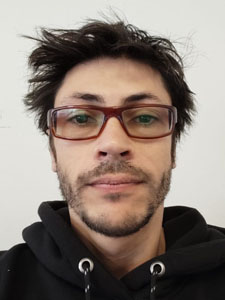 Martín Giuliano studies oscillatory systems under the action of noise, able to transform mechanical energy into useful electric power through piezoelectric transduction. In particular, he is interested in their dynamical response and performance indicators: incoming power, harvested power, and efficiency. He holds a Ph. D. in Physics from Universidad Nacional de Mar del Plata and, presently, he is a postdoc fellow of CONICET under the supervision of Drs. Damián Zanette and Hernán Pastoriza.
Martín Giuliano studies oscillatory systems under the action of noise, able to transform mechanical energy into useful electric power through piezoelectric transduction. In particular, he is interested in their dynamical response and performance indicators: incoming power, harvested power, and efficiency. He holds a Ph. D. in Physics from Universidad Nacional de Mar del Plata and, presently, he is a postdoc fellow of CONICET under the supervision of Drs. Damián Zanette and Hernán Pastoriza.
 Natalia Díaz Miguez
holds a degree in Psychology from Universidad Abierta Interamericana. Presently, with a scholarship of CONICET, she carries on her Ph. D. in Psychology at Univesidad Nacional de Córdoba under the supervision of Drs. Mariana Lozada (INIBIOMA, CONICET) and Marcelo Kuperman. She focuses on her thesis from an interdisciplinary perspective, working on problems such as chronic stress, social integration, and prevention tools in middle childhood.
Natalia Díaz Miguez
holds a degree in Psychology from Universidad Abierta Interamericana. Presently, with a scholarship of CONICET, she carries on her Ph. D. in Psychology at Univesidad Nacional de Córdoba under the supervision of Drs. Mariana Lozada (INIBIOMA, CONICET) and Marcelo Kuperman. She focuses on her thesis from an interdisciplinary perspective, working on problems such as chronic stress, social integration, and prevention tools in middle childhood.
 Sebastián Bouzat
studies motion and propagation phenomena in physical and biological systems, incluidng pedestrian motion, dynamics of granular media, active transport in cell cytoplasm, and eye motion. He is also interested in processes of biological and cultural evolution. He has a Ph. D. in Physics, and he is independent researcher of CONICET and associate professor at Universidad Nacional de Río Negro.
Sebastián Bouzat
studies motion and propagation phenomena in physical and biological systems, incluidng pedestrian motion, dynamics of granular media, active transport in cell cytoplasm, and eye motion. He is also interested in processes of biological and cultural evolution. He has a Ph. D. in Physics, and he is independent researcher of CONICET and associate professor at Universidad Nacional de Río Negro.
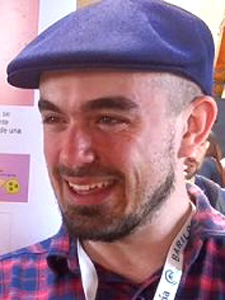 Tomás González is a biologist. With a scholarship of ANPCyT, he carries on his Ph. D. thesis in Biology on epidemiological dynamics in camelid populations of NW Argentina, under the supervision of Drs. Fabiana Laguna, Guillermo Abramson and Adrián Monjeau (Fundación Bariloche), at Universidad Nacional del Comahue.
Tomás González is a biologist. With a scholarship of ANPCyT, he carries on his Ph. D. thesis in Biology on epidemiological dynamics in camelid populations of NW Argentina, under the supervision of Drs. Fabiana Laguna, Guillermo Abramson and Adrián Monjeau (Fundación Bariloche), at Universidad Nacional del Comahue.
